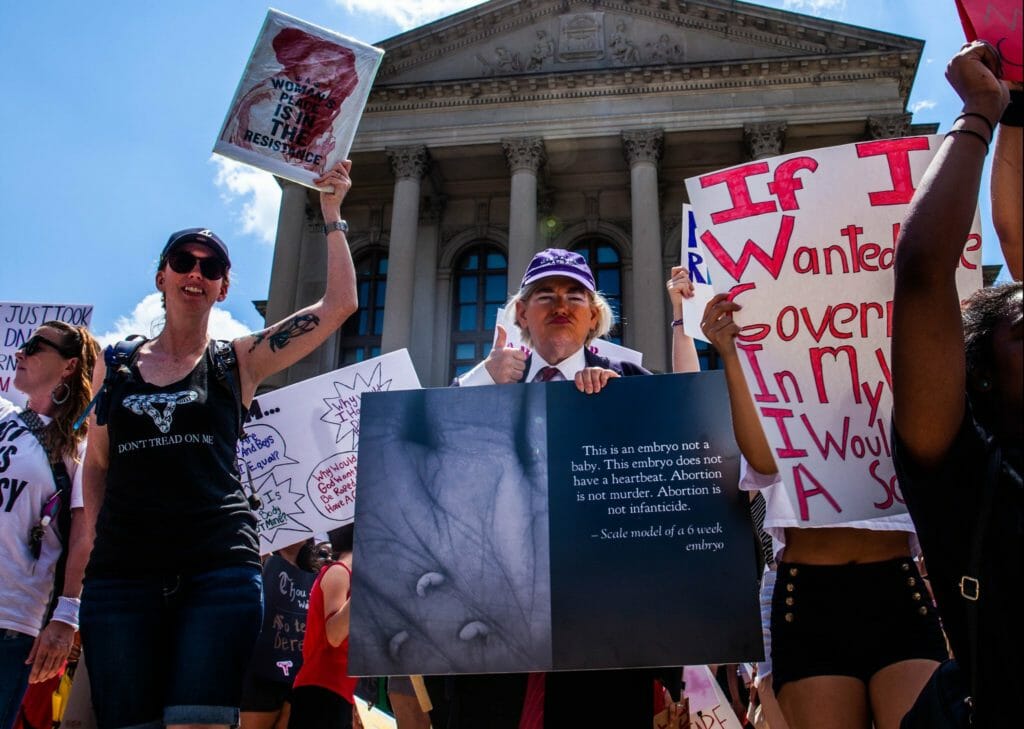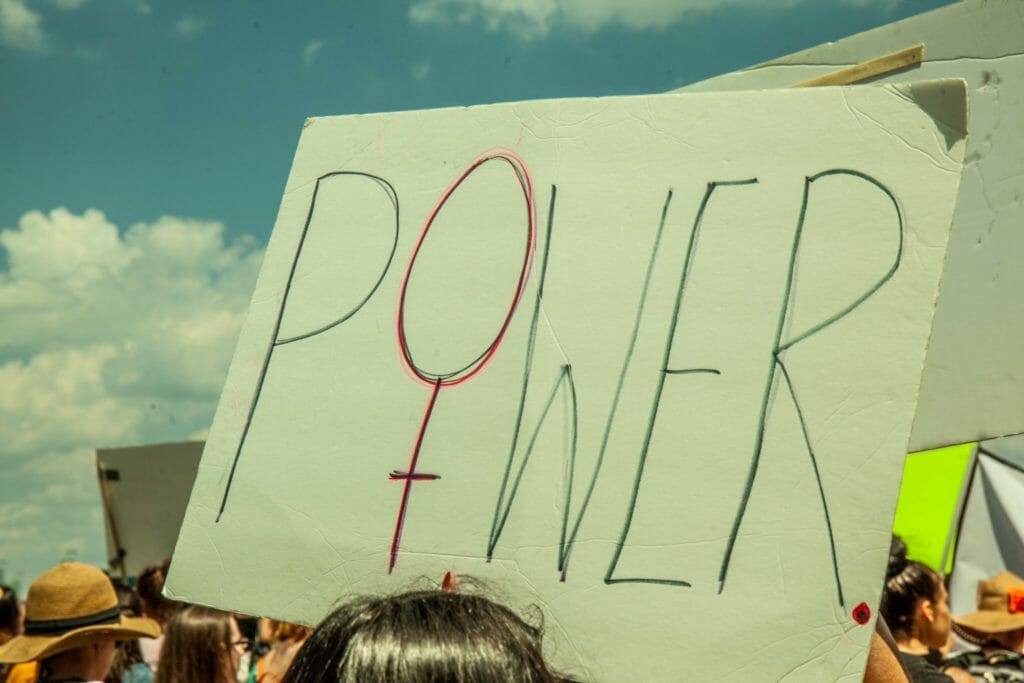Nabilah Islam is a community organizer, native of Gwinnett County, and daughter of Bangladeshi immigrants. She ran a historic campaign for Congress in Georgia\’s 7th Congressional District and played a critical role in flipping Georgia Blue in 2020 by serving as Senior Advisor to the Gwinnett County Party and increasing the margin for Joe Biden by 2% in the 2020 general election. She founded the Save our Senate organization to mobilize low turnout voters for Sens. Jon Ossoff and Raphael Warnock in the 2021 run-off special election. Nabilah is a lifelong Democrat who has been committed to advancing progressive causes and engagement.
GWINNETT COUNTY, Ga. — The first batch of redistricting information the Census Bureau released on Aug. 12 confirmed much of what I already knew about Georgia’s 7th Congressional District. Composed mainly of Gwinnett County and the southernmost part of adjacent Forsyth County, the landscape changes so quickly with the booming population that it’s easy to lose your footing. It’s a diverse district of working families with pockets of wealth and pockets of poverty. When the district was drawn in 2010, 692,025 people — 49.9% of whom were white — called it home.
The new data released this month paints a new portrait of the most populous region in the state. True to the development that continuously alters the city streets, that portrait shows vibrant communities full of growth, increasingly Black and brown, increasingly immigrant, increasingly ready to break with the politics of white austerity that have defined Georgia for generations. Today, the white population has dropped by 20,000, and their percent share of the population by 11.8% to 38.1%.

I should know this about Georgia’s 7th Congressional District; it’s my home. My parents, Bangladeshi immigrants, came here and worked harder than I could have imagined possible. Their work provided me the chance to attend public school here, to grow up here, and to commit their sacrifices to memory. Hardly an outlier, today over one in four residents of the seventh district are foreign-born. In 2020, I ran for Congress to represent the district I live in because I know the stories of its families by heart. I know they are hungry for policies that will make a tangible difference in their lives and the lives of their children. That’s why I ran proudly on a platform of Medicare for All, a Green New Deal, and student debt forgiveness. It’s why, after running a race of which I’m still proud, I endorsed now-Rep. Carolyn Bourdeaux in June 2020 following her victory in the primary. I still remember the statement she made thanking me:
“I thank Nabilah for running her campaign with courage and clarity, and for the bright spotlight she has provided on the issue of healthcare in this campaign. Nabilah and her family know the struggle that so many people in our community face to access quality, affordable care.” — Carolyn Bourdeaux, June 2020.
In November, after losing the 2018 race for that seat by 433 votes, Bourdeaux won the general election and flipped the seat from Republican to Democrat on the way to sending Joe Biden to the White House. A few weeks later, the voters of her district, roughly 63% Black, Hispanic, Asian, Native, and Pacific Islander, sent Raphael Warnock and Jon Ossoff to the United States Senate — and a Democratic senate majority along with them. They did so for the same reasons I ran, and the same reasons I ultimately decided to endorse Bourdeaux after a hard fought primary. Because we need real change in the 7th District. We need actual solutions for 21st century problems. Immigrant communities, the backbone of Gwinnett County, need those solutions, and they powered Bourdeaux’s victory in 2020. Today, some of those solutions are within our grasp.
The Path Forward
President Biden learned the lessons of those victories. He knows they wouldn’t have happened without the Black and brown voters of the 7th Congressional, and he knows he has to deliver to truly earn their trust. With that in mind, he set out with Democratic leadership in the House and Senate — with the help of two new Georgian senators — to make good on his campaign promises through a two-track legislative program. On one track, a bipartisan infrastructure package that could go a significant way towards rebuilding our nation’s crumbling bridges and roads; on the other, a massive federal budget built in a real partnership between the President and Chairman of the Senate Budget Committee, Sen. Bernie Sanders. This package includes, among other proposals:
- Universal Pre-K
- Medicare Coverage for Dental, Vision, and Hearing
- Subsidies for low-middle income families using the ACA Marketplace
- Paid Family Leave, 12 Weeks, for Both Parents
- Extending the new, larger Child Tax Credits
- Tuition Free Community College
- Ensuring low-middle income families pay no more than 7% of their income on childcare
- Lowering prescription drug prices by allowing Medicare to negotiate with the pharmaceutical companies
- Home-care for seniors
- A Medicaid look-alike program that would provide medical coverage to over 400,000 Georgians
- Clean Energy Investment
- Polluter Fees
- Electrifying the Federal vehicle fleet
- Agricultural Conservation efforts
- Drought and Wildfire Reduction Efforts
- Consumer Rebates for Home Electrification and Weatherization
- Pathway to Citizenship for DACA/DAPA recipients, TPS recipients, farmworkers, and essential workers
This is the platform that motivated working families in Gwinnett and Forsyth to vote for Bourdeaux and Biden, for Ossoff and Warnock. The President has a plan to deliver on it. We are only a matter of weeks or months from passing the most positive, significant package of legislation since Lyndon B. Johnson’s Great Society in 1965. It could very quickly become a reality, and it is, in effect, a booster shot for America.
Unfortunately, it wasn’t the only thing that happened on Aug. 12.
Bourdeaux’s Letter
The framework for the Reconciliation Bill, which is called a “Budget Resolution” and includes a pathway to citizenship, passed out of the Senate, but a small group of nine moderate Democrats in the House are now attempting to kill the bill before they even start working on it.
On Aug. 12, that group sent a letter to Speaker of the House Nancy Pelosi which said they “would not consider voting for a budget resolution” until a different bill was passed and signed into law by President Biden. These Democrats know that if their preferred bill gets signed into law first, then they can make themselves look better to Republicans in their state by killing parts of the larger Reconciliation Bill. Rep. Bourdeaux’s name was at the top of the list of signatures on the letter, effectively claiming leadership of the group. It’s possible the Congresswoman viewed this as an attempt to “delay” the bill, rather than kill it. However, her own words on the subject of time delays and legislation proves this false. As Carolyn said only a few days ago, “Everyone knows time kills deals.
This reckless posturing flies in the face of the massive impact the legislation could make in her own district. According to FWD.us, the immigration provisions alone would grow the economy of the 7th Congressional District by more than $680,000,000.
Then again, you might think, “What’s the big deal? We have the votes. Why does the order of passage matter?” It matters because Bourdeaux isn’t demanding the rest of the Democratic Party bow to her will and simply pass the bipartisan bill first before accepting the budget framework and hammering out the other legislation. She’s demanding that the infrastructure bill pass and President Biden sign it into law before she’ll even consider what universal pre-k and medical coverage for hundreds of thousands of Georgians could mean for her constituents.
Bourdeaux knows that once her bill passes, then she’s got something to brag about at home no matter what happens to the Reconciliation Bill. She is then free to drag the reconciliation process out and see what Republicans do to the 7th District in the redistricting process. If she suddenly finds herself in a district that more closely resembles the old 7th (i.e., whiter and more moderate) then she’d be free to take a hacksaw to the budget and hold it up as proof of her moderate bonafides to her new district. But Carolyn wasn’t elected for the residents of whatever the new 7th District will be. She was elected by the current ones; we made history, twice, and delivered Georgia for the president and the senate for one reason: to pass the exact type of legislation that Rep. Bourdeaux is now so bravely threatening to stall in the house.
Why This Makes No Sense for Bourdeaux
Complicating this for the Congresswoman, however, is the fact that Bourdeaux’s district is almost 100,000 people over the suggested, equitable division required by law. That means there’s no way Georgia Republicans won’t carve up the 7th District when they make new maps this fall. Whether she believes the Republican state legislature might treat her favorably if she postures strongly against the larger spending bill, or if she’s simply hedging her bets in case her new district skews much whiter and conservative than her current one, remains unclear.
What is clear is that one of the things that Republicans in Bourdeaux’s District would love to get rid of is the pathway to citizenship. This isn’t conjecture or an abstraction. A poll conducted by the University of Georgia’s School of Public and International Affairs between April 20 and May 3, 2021 for the Atlanta Journal-Constitution found that 84% of Georgia Republicans strongly disapprove of President Biden’s handling of immigration and 9% disapprove for a total of 93%.
Consider also that Bourdeaux’s district consists mainly of Gwinnett County. According to a 2018 study by the Migration Policy Institute, Gwinnett has a “relatively small unauthorized population, ranking 28th among all counties, but it ranks fifth in the number of detainers issued by ICE.” The vast majority of those detainers were issued against undocumented immigrants for simple traffic violations by the Gwinnett Sheriff’s Department under then-Sheriff Butch Conway. There is no way to tell if the driver of a vehicle passing by a deputy’s vehicle has legal status or not, implying strongly that the department under Conway had a culture of racial profiling. Conway argued at the time that undocumented drivers were less safe due to lacking licenses. Even accepting that argument, the best thing Bourdeaux could do for the safety of both the licensed and unlicensed drivers would be to pass this Reconciliation Bill.
But immigration isn’t simply a Latino issue. My family proves that point.
Historic turnout among Asian residents of Bourdeaux’s district is credited with helping secure Biden the White House and Sens. Ossoff and Warnock their senate seats. Organizations like They See Blue, an advocacy organization for AAPI communities, are coming out against this move by Bourdeaux. Returning to Hispanic communities momentarily, it could be tempting for someone ignorant of the 7th District to assume that the people most in favor of this legislation can’t make a difference at the ballot box. Such an assumption would be unwise. The Georgia Association of Latino Elected Officials (GALEO) found in their report entitled “2020:
The Georgia Latino Electorate Grows in Power” that Gwinnett County is home to the largest Latino electorate in the state at 71,542 voters — over 56% of which came out to vote last year. Bourdeaux’s district has almost twice as many Latino voters as the next highest district according to the same report.
It’s true the Democratic Party often takes voters like my family for granted. It’s true that many are much more moderate than the progressive wing of the Democratic Party, but this isn’t about that, no matter how much Rep. Bourdeaux may wish to make it about that. Time after time, both of the major parties of the U.S. government have “talked the talk” on creating a pathway to citizenship, on supporting working families, on making education affordable, and protecting the environment. Time and again, selfish decisions by minorities of those parties have caused any progress to slip through our fingers.
Despite this, poll after poll shows that the majority of Americans want a pathway to citizenship for exactly the same groups of people the Reconciliation Bill would help; that protecting our planet is a human priority rather than a partisan one; that tuition-free college and affordable childcare would be welcomed by peoples all across the political aisle. Bourdeaux may claim this is about bipartisanship, but after minority voters from immigrant families helped put her in office, this is one time she should drop the politics. The Reconciliation Bill will undoubtedly be used against her next year. There’s no denying that reality, but anyone who would attempt to stay in power by using the lives of her constituents’ families and friends as a bargaining chip doesn’t deserve to stay there in the first place.




